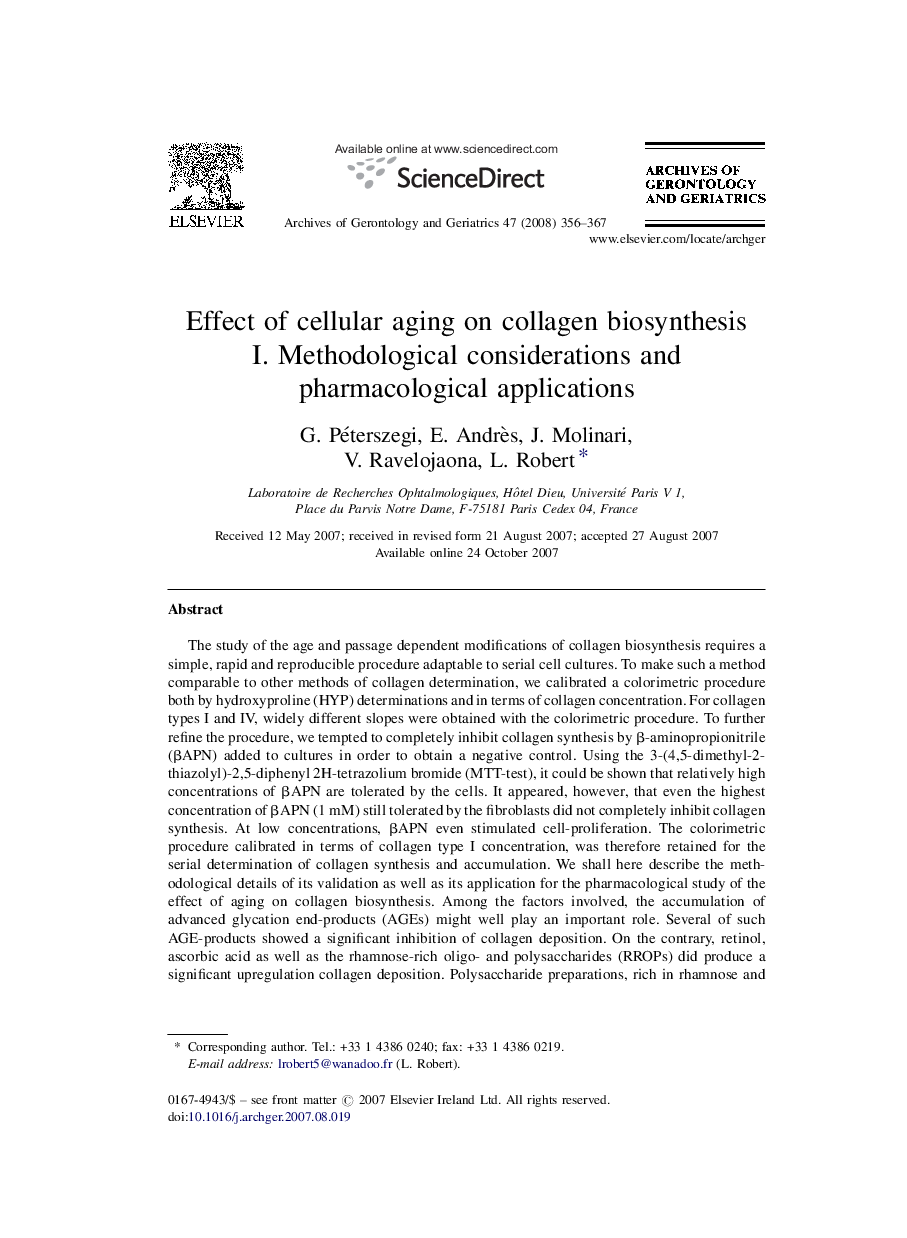| Article ID | Journal | Published Year | Pages | File Type |
|---|---|---|---|---|
| 1903933 | Archives of Gerontology and Geriatrics | 2008 | 12 Pages |
Abstract
The study of the age and passage dependent modifications of collagen biosynthesis requires a simple, rapid and reproducible procedure adaptable to serial cell cultures. To make such a method comparable to other methods of collagen determination, we calibrated a colorimetric procedure both by hydroxyproline (HYP) determinations and in terms of collagen concentration. For collagen types I and IV, widely different slopes were obtained with the colorimetric procedure. To further refine the procedure, we tempted to completely inhibit collagen synthesis by β-aminopropionitrile (βAPN) added to cultures in order to obtain a negative control. Using the 3-(4,5-dimethyl-2-thiazolyl)-2,5-diphenyl 2H-tetrazolium bromide (MTT-test), it could be shown that relatively high concentrations of βAPN are tolerated by the cells. It appeared, however, that even the highest concentration of βAPN (1 mM) still tolerated by the fibroblasts did not completely inhibit collagen synthesis. At low concentrations, βAPN even stimulated cell-proliferation. The colorimetric procedure calibrated in terms of collagen type I concentration, was therefore retained for the serial determination of collagen synthesis and accumulation. We shall here describe the methodological details of its validation as well as its application for the pharmacological study of the effect of aging on collagen biosynthesis. Among the factors involved, the accumulation of advanced glycation end-products (AGEs) might well play an important role. Several of such AGE-products showed a significant inhibition of collagen deposition. On the contrary, retinol, ascorbic acid as well as the rhamnose-rich oligo- and polysaccharides (RROPs) did produce a significant upregulation collagen deposition. Polysaccharide preparations, rich in rhamnose and fucose (the EROB-mixture) could protect against the AGEs-induced inhibition of collagen accumulation.
Related Topics
Life Sciences
Biochemistry, Genetics and Molecular Biology
Ageing
Authors
G. Péterszegi, E. Andrès, J. Molinari, V. Ravelojaona, L. Robert,
